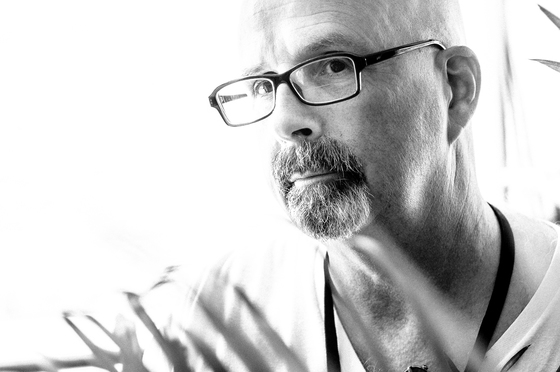
Photo credit: John Gessner
Tell us about your tour vehicle. Any notable breakdown stories?
I don’t regularly tour anymore, since Hootie and the Blowfish took a break. Any shows I do out of town nowadays I either fly to or drive in a late-model Ford Escape. It’s pretty new so not a lot of miles.
One good breakdown story was driving out of Amsterdam with the Continental Drifters and our daughter Miranda in a large Sprinter-type van; we’d already had to install cargo straps so we could use her car seat. I looked out the left side window and watched one of our wheels and part of an axle go shooting across a couple lanes of motorway, followed by us grinding to a halt on the side of the road. Half of the band took the kid across a frozen field to a farmhouse where they begged a little mercy and got to sit out the repairs in relative comfort. We did get to the next gig in time, too.
How do you eat cheaply and/or healthy while on tour?
On something like a Hootie bus tour, I eat catering, usually a good breakfast and a light dinner before the show, favoring salad. I try to stay away from the snack drawer which on the band bus is pretty heavily laden. Quitting smoking cigarettes and drinking alcohol freed up a considerable amount of money, too.
How many strings do you break in a typical year? How much does it cost to replace them?
I used to break a lot more strings until I changed to a slightly higher gauge and began using medium gauge picks. Plus my guitars get expert attention from Craword and Hansen in Durham and Michael Constanzo in Charleston, so I’m a lucky guy. At home, I try to remember to change strings when I need to.
Where do you rehearse?
My house is my reheasrsal space! I have guitars in most rooms. In the basement, I have a small demo studio, but it’s too tiny to fit more than about two people at a time. So I’ve held Little Diesel and dB’s rehearsals in the big unfinished family room in our lower level where we can spread the drums out. It’s never really loud, which is good because I don’t have soundproofing on the room. I loved having a dedicated practice place like The dB’s did for many years in Manhattan’s Music Building in the 1980s.
What was the title and a sample lyric from the first song that you wrote?
Ouch. I started writing songs when I was in 3rd grade! I only have a title from then: “Good Wishes, Dirty Dishes and Goldfishes.” How about the first song I recorded in 1972? It was on an album called Rittenhouse Square, the name of the band that also had Mitch Easter and Chris Stamey as members. The song was called “Like Wow” and was a fly’s eye view of the local hippie scene in Winston-Salem. “Welcome to the Gardens, home of love and of peace/and the local police/look around, pigs abound on the grounds.”
Describe your first gig.
Very first show I played and got paid for was at a Baptist church “coffeehouse” show kitty-cornered from my parents’ house in Winston-Salem. The band was called Soup (I think) and Chris Stamey played bass. We took our ill-gotten gains (probably about $25) and went and ate at the Rose’s Store lunch counter. My first glance with “living the dream.”
What was your last day job? What was your favorite day job?
My most recent day job was as Management Assistant at Durham Performing Arts Center, a 2800 seat Nederlander theater. My favorite day job would have been any record store employment of which there were several.
How has your music-related income changed over the past 5-10 years? What do you expect it to look like 5-10 years from now?
I’ve never made a whole lot of money playing my own music; the most I’ve made was as a sideman for Hootie and the Blowfish and R.E.M. But my fates have improved considerably once I made back the 1986 advance I received for publishing from IRS Music; now, when a song I wrote gets used in a TV show or movie, I actually see some of it.
Streaming services, of course, amount to almost nothing. I can only hope that the invariable mass recognition of my genius work will help fill the coffers in the next decade, but realistically, I suspect it will just continue to plummet.
What one thing do you know now that you had wished you knew when you started your career in music?
That the best way to do this career thing in music is to just love what you’re doing and not bank on it being sustainable. I’m grateful for the amount of recognition and relative success I’ve achieved, believe me, but it won’t keep the family fed. My mom suggested I learn to type, and I’ve been forever grateful for that advice.
